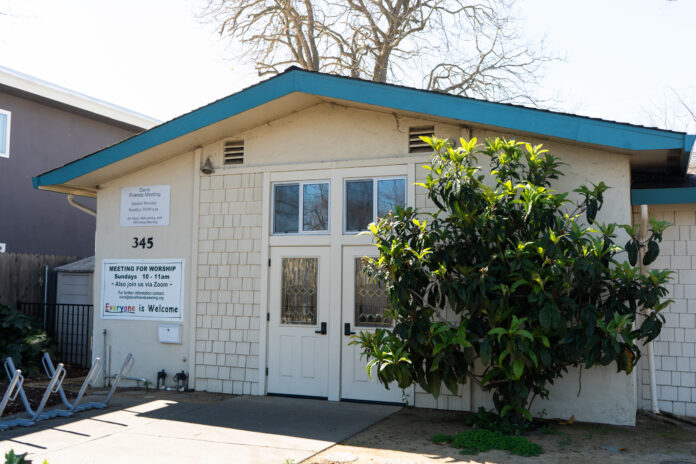Masako Toki and Professor Stephen Herzog spoke on how the legacy of nuclear disarmament activism is still carried out to this day
By MATTHEW MCELDOWNEY — city@theaggie.org
Masako Toki and Professor Stephen Herzog gave a talk on nuclear disarmament for the Feb. 27 Davis Friends, a Quaker organization, meeting. Toki and Herzog discussed a few of the ways to be involved in nuclear disarmament activism today.
Toki, the senior project manager and research associate at the Middlebury Institute of International Studies at Monterey, talked about the educational programs she leads on the nonproliferation of nuclear weapons. Ranging from high school students to graduate programs, Toki described her role in inspiring the younger generations to become involved in the local and international issue of nuclear weapons. Toki then shared about the Summer Undergraduate Nonproliferation Fellowship Program.
“I am very passionate about nuclear disarmament education, so I would appreciate any opportunity to share what I do,” Toki said.
Toki felt it was important to emphasize her role as an educator to facilitate intergenerational collaboration on the issue of nuclear disarmament. Through this education, the voices and stories of those who suffered from the atomic bomb are carried on.
“When you hear about Hiroshima, Nagasaki or the atomic bomb, perhaps the first image you have is the mushroom cloud,” Toki said. “But, [those photos] were taken from an airplane. The real impact can only be understood from within.”
Toki presented the horrors that these atomic bomb victims — the hibakusha — suffered through. In addition to photography taken at the sites of the atomic bombings, Toki stressed the importance of the 2024 Nobel Peace Prize Winner Nihon Hidankyo, an organization that shares the personal stories of atomic bomb victims to highlight the humanitarian cost of a post-nuclear world.
Hidankyo engages in international activism to achieve a world without nuclear weapons, according to Toki. In doing this, the organization builds empathy for these painful, collective histories on the international and local stage.
“The basis of peace is understanding the pain of others,” Toki said.
In Herzog’s talk, he presented his research on the kind of international and local reach that the nonproliferation activist movement is achieving in the current day. Herzog, a professor of the practice at the Middlebury Institute of International Studies, described the challenges and success activists are having through their different strategies.
Strategies ranging from public education to local support were a few of the subjects that Herzog presented. Herzog then described the efficacy of the arguments for deterrence as opposed to nonproliferation, the impact of city or district support on nonproliferation policy and the optics of nonproliferation activism.
“It’s important to recognize that there are some things that nuclear disarmament activists are doing that may not work particularly well,” Herzog said.
Herzog acknowledged the difficulty of informing the public on the side of nonproliferation. He also then highlighted the tangible effects activism could bring.
“If you are an activist advocating for nuclear disarmament, what you are doing is not futile,” Herzog said. “There are things disarmament activists are doing that are successful with the public, local officials and foreign policy staffers.”
Herzog then talked about the important work of nuclear disarmament activist groups.
“It is a gift to be able to present the work you do [as an academic], to people who do this every day,” Herzog said. “So, me presenting the work on the effect, the success and the failure of the different mechanisms for nuclear disarmament activism to a group of people who actively work on, that […] was a good experience.”
Toki was also very grateful to be able to give her talk on nonproliferation activism. Even though the solution of nonproliferation may not be in the limelight, Toki described its importance for ensuring global peace.
“The most important lesson to be learned is: never again,” Toki said.
Written by: Matthew Mceldowney — city@theaggie.org
Note: An earlier version of the article referred to the institute as the Milbury Institute of International Studies in Monterey. The corrected name is the Middlebury Institute of International Studies at Monterey.









